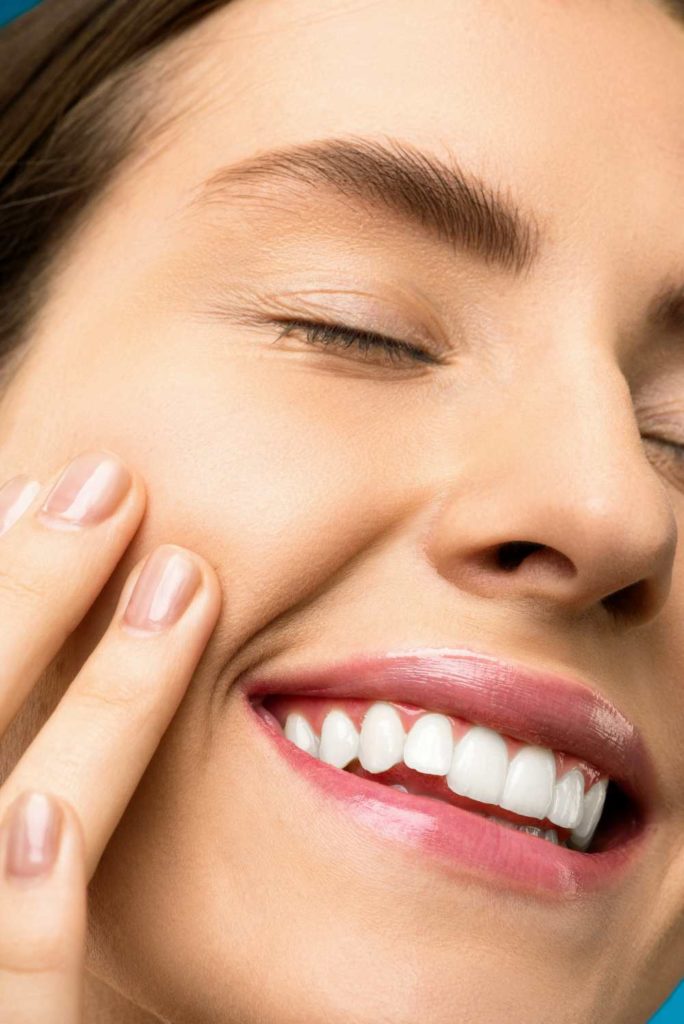The different peptides for skin are the latest advancement in the field of anti-aging. We talk about them below.
In this article:
- What Are Peptides?
- The Role of Peptides in the Aging Process
- Different Peptides for Skin Health
- Benefits of Peptides to the Skin
- Peptide Drug Delivery
- Serums and Creams
Anti-Aging Peptides in Skin Care
What Are Peptides?
Peptides are short chains of amino acids that act as chemical messengers and have the ability to go into cells. Once they reach the inside of a cell, they repair tissues at their cellular level.
This ability to direct the body to heal itself is what gives peptides the ability to provide anti-aging benefits.
The Role of Peptides in the Aging Process
There are hundreds of peptides within the human body. Thus, all the peptides used in regenerative medicine have the exact same chemical structure as those peptides found within the human body.
As we age, we lose the ability to repair damaged and inflamed tissue. Not only do we lose the ability to repair, but we also lose the ability to correctly rebuild damaged tissues.
As the mistakes accumulate, there is progressive aging, development of autoimmune disease (Alzheimer’s Disease, Parkinson’s Disease,), and the occurrence of cancers.
Different Peptides for Skin Health

1. Growth Hormone Stimulants: Ipamorelin and CJC 1295
Growth hormone stimulants such as CJC 1295 and Ipamorelin are two of the most used anti-aging peptides. Typical formulations involve combining these two peptides as CJC 1295/Ipamorelin.
In regenerative medicine, anti-aging is defined as the prevention of the loss of natural muscle mass. The medical term for this loss of muscle is known as sarcopenia.
The longer we retain our lean muscle mass, the better our metabolism.
It is more common for someone in their teenage years to have normal cholesterol and sugar levels in comparison to and adult over the age of forty years old. The reason for this is the:
- Absence of optimal growth hormone levels after the age of 30 years
- Body composition that has less lean muscle and more fat
2. Healing Peptide: BPC-157 or Pentadecapeptide
BPC-157 (Body Protective Compound-157) is another peptide that works synergistically with CJC 1295/Ipamorelin in order to provide anti-aging benefits.
One of the many known functions of BPC-157 is that it protects the walls within the arteries. Through its potent anti-inflammatory properties, BPC-157 prevents plaque formation, which leads to the leading cause of death in the United States, heart disease.
Additionally, BPC-157 directs our clotting factors so that both blood clots and hemorrhages do not occur as they do in strokes and pulmonary emboli.
The integrity of our blood circulation has been used for decades as a measuring stick of longevity and overall health. As an example, in cardiology, the gold standard for evaluating the risk of a heart attack is by visualizing the coronary arteries via cardiac catheterization.
Cardiac Catheterization Definition: A diagnostic procedure for heart conditions. It threads a tube called a catheter through blood vessels starting from the neck, arm, or groin to the heart.
3. Water-Soluble Regenerative Peptide: Thymosin-Beta 4
There is another peptide that is frequently used with these other peptides in order to improve skin health. This peptide is known as Thymosin-Beta 4 (TB4).
TB4 promotes tissue regeneration by coordinating the formation of collagen layers that make up the skin and its surrounding tissues.
Benefits of Peptides to the Skin
- Peptides can revitalize skin integrity, color, and elasticity in many ways. They promote skin hydration, improve skin tone, boost collagen, reduce wrinkles, and repair photodamaged skin.
- Growth hormone stimulants (CJC 1295/Ipamorelin), as aforementioned, improve muscle tone. Restoring muscle tone increases blood flow and delivery of various nutrients to skin cells.
- BPC-157 is a peptide that promotes the formation of new blood vessels in sun-damaged skin.
Peptide Drug Delivery
At present, all peptides are synthesized in laboratories so that they have the same chemical structures as those found in the human body.
The delivery of peptides is delicate. For that reason, most peptides are administered via subcutaneous injections.
Acidic changes within the intestine affect the chemical integrity of peptides when they are ingested orally. The obvious exception to the injected delivery is that of BPC-157, which was first discovered in stomach juices.
At this time, BPC-157 is the only peptide that can be taken orally. There are several commercial products that advertise intranasal deliveries of various peptides.
However, clinical trials have shown that intranasal delivery systems do not deliver detectable levels of peptides within the blood.
Proteins and their smaller forms, peptides and amino acids, have long been existing in the human body. Their natural ability to repair damaged connective tissues and fight free radicals put them at the pedestal of anti-aging and regenerative medicine.
If you want to know more about peptide therapy for skin health, book an appointment at North Fresno Primary Care at 559-298-9600.
Serums and Creams
There is a vast array of serums, creams, and sheet face masks that contain the beauty industries preferred, peptides for the skin.
Peptides are smaller and easier to absorb than proteins, making them the anti-aging beauty market’s leaders.
Peptide Serums and creams work by triggering the body into thinking there is a topical skin injury. This stimulates the body’s collagen-boosting cells, called fibroblasts.
If you are considering off the shelf options of topical peptides for skin, you should look at products that contain collagen peptides. These will enable the body to generate new collagen through fibroblasts. Fibroblasts are the cells that your body uses to produce collagen.
Creams have gained popularity in the night creams market, including hypoallergenic creams for sensitive areas such as around the eyes. Many market leaders are formulated to repair with copper peptides and a rich moisturizing base.
It is worth noting that external application of products on the skin should only be applied as per a moisturizing cream, slathering it on will not expedite the process.
Serums are the market leaders in off the shelf options. They are usually enriched with acidic bases such as hyaluronic acid (vitamin C) to help to smooth and to brighten.
Serums are thought to be absorbed more quickly than creams, making them the preferred peptide for skin beauty options.
Are you looking for ways to fight sagging skin, fine lines, and wrinkles? Would you give advanced treatments like peptides for skin a try? Let us know in the comments below!



